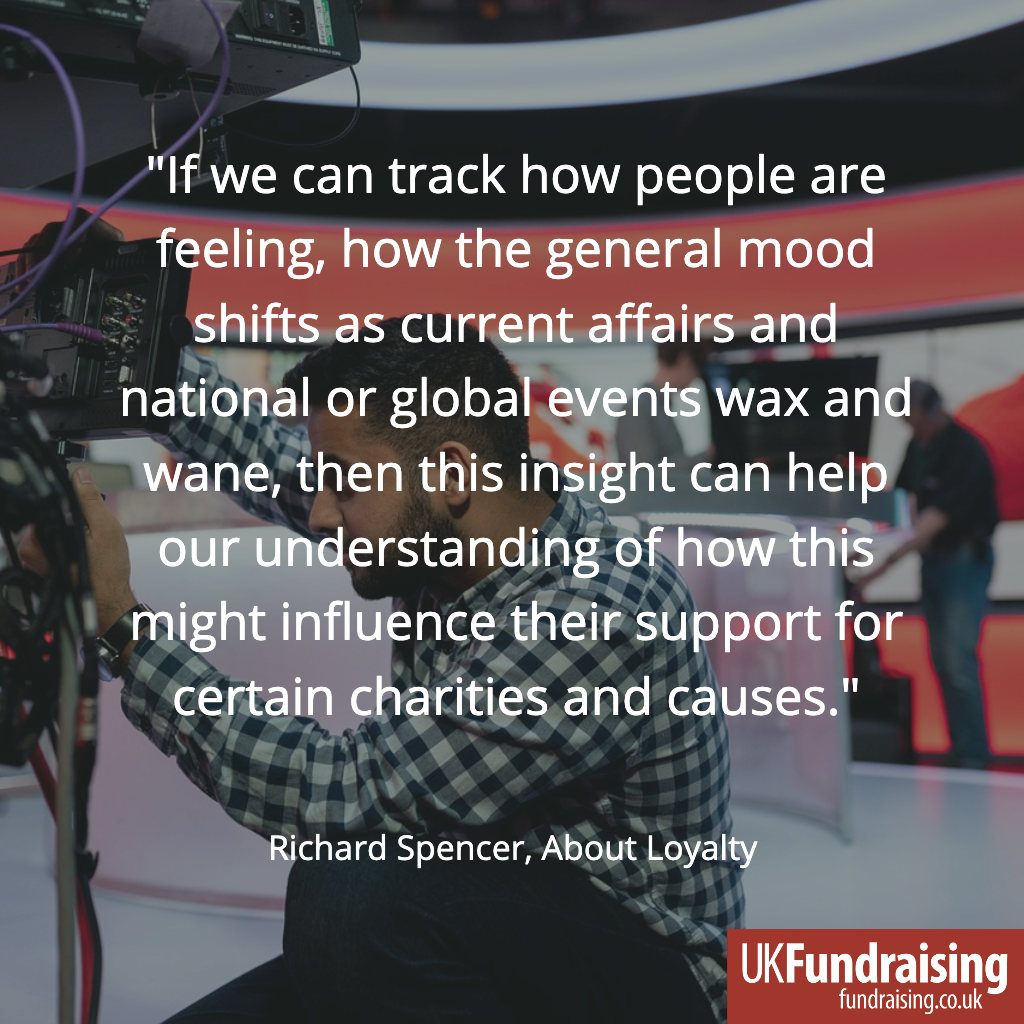From the Olympics to climate change – how issues around us impact charitable support

Whether you started your day marvelling at 13-year-old Team GB skateboarder Sky Brown or ended it by being captivated by the escapades of Love Island, it is is fair to say the summer television has had much of the nation glued to their screens.
But do you know the impact these televisual highlights have on the way think and behave, and how that could affect charitable support?
To put it into context, our Public Sentiment Tracker measured a 10% increase in the relative importance of sports and recreation charities as the nation got behind the incredible efforts of Team GB during the Tokyo Olympics.
Advertisement
And following events on Love Island, we saw a jump of seven per cent for people who agreed that ‘romance/personal relationships’ was a priority following a steady 40% during the months of May and June.
Whether a guilty TV viewing pleasure or something more serious like government policies, economic shifts or climate change, it is clear that the issues around us have a direct and measurable impact on how people are weighing up their priorities. The end result is that some charitable causes are capturing more attention, at certain points in time.
If we can track how people are feeling, how the general mood shifts as current affairs and national or global events wax and wane, then this insight can help our understanding of how this might influence their support for certain charities and causes. This is information that could be vital in helping charities engage with and relate to their supporters and potential supporters in a timely and more relevant way.
About Loyalty’s research includes a weekly survey of 2,000 members of the public. We ask them how they are feeling. Each week we investigate the news and topical issues that are capturing people’s attention and the relevancy to charitable causes.

Refugees reaching the UK
For instance, in early July, when there were stories in the media about record numbers of refugees coming to the UK, we saw a 10% increase in net agreement that ‘controlling immigration’ should be a government priority. At the same time, we measured a 6% increase in the relative importance of ‘overseas aid’ as a charitable cause and we saw an increase in the view that investing in social services and welfare should be a priority.
Climate crisis and COP26
This week, there has been a lot of coverage about the report from the Intergovernmental Panel on Climate Change (IPCC) in the run up to COP26 in Glasgow later this year. We are anticipating measurable shifts in those who see ‘climate and sustainability’ as key priorities and environmental charities are almost certainly to benefit over the coming weeks if they proactively communicate during the window of heightened interest and feeling.
Tokyo Paralympics
The same predictions apply for disability charities. Disability causes have scored relatively low interest in recent months but as the public engages with the Tokyo Paralympics at the end of this month, we’d expect to see this boosted with renewed interest and support.
Understanding public sentiment goes beyond what’s trending on Twitter. It goes deeper into how people are feeling, how it’s changing their views and focus, and ultimately how they behave.
These are critical insights for charities looking to communicate more effectively with a deeper level of engagement, this can only be achieved by knowing what your audiences are feeling, thinking about and how that affects their behaviour.
16 August 2021
Richard Spencer is a director of research based agency About Loyalty, which helps charities understand their supporters and potential supporters to grow supporter loyalty. He’s also a member of the UK’s IOF Supporter Experience Project. Richard was the Director for the Commission on the Donor Experience, he has held senior positions at RSPB, Scope and The Children’s Society.




